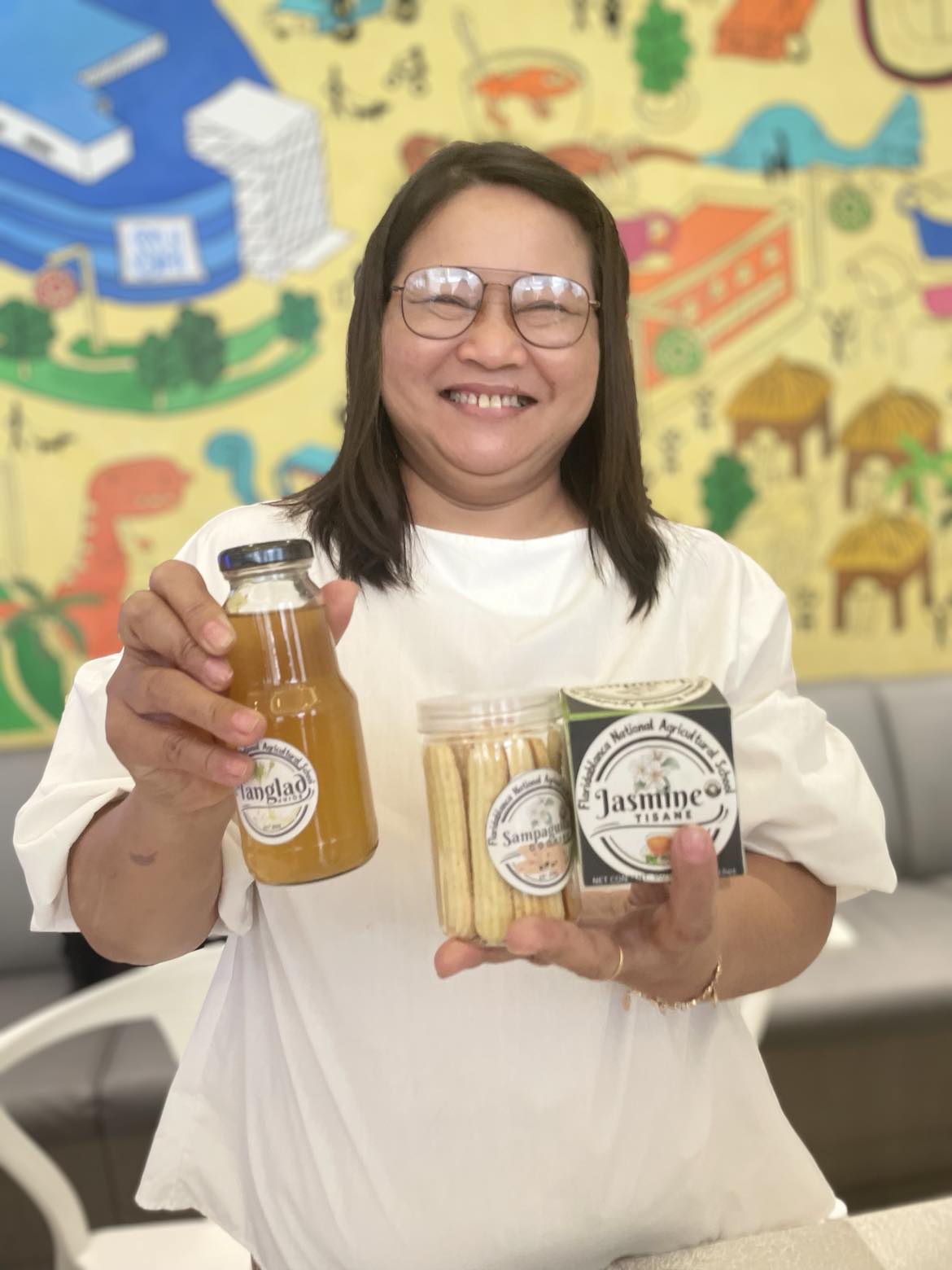Sampaguita by-products in Pampanga school awaiting FDA OK

Teacher Rosa Baul made tea, cookies, and juices from the flowers and leaves of Sampaguita, expecting these to help flower growers in three Pampanga towns, including Aeta villages. (Photo by Tonette T. Orejas)
ANGELES CITY — Five food by-products from Sampaguita (Jasminum sambac) have been developed by a teacher who planned the school-based enterprise to help flower growers in three Pampanga towns, including an Aeta community.
The Sampaguita cookies, Jasmine tisane, and Sampaguita-infused Lemon and Bignay (Antidesma bunius) juices, as well as Dragon fruit jam, have undergone the so-called standardization process of the Department of Science and Technology, according to Rosa Baul, a technical and vocational education teacher at the Floridablanca National Agricultural School (FNAS) in Floridablanca town.
The items are awaiting the approval of the Food and Drug Administration, she added.
The shrubs are grown by around 40 Grade 11 students among Aetas on less than a hectare of land within the main FNAS campus below the Aeta village of Nabuklod. The farm produces an average of 11 tabo (dippers) per season.
READ: Scent of success: Pampanga villagers find lifeline in sampaguita garlands
Article continues after this advertisement“When the project goes commercial, the Sampaguita flowers and leaves will be bought from farmers in Lubao, Guagua and Floridablanca towns,” she said at the news forum of the Pampanga Press Club in Park Inn by Radisson last Tuesday.
Article continues after this advertisementAccording to the leaders of cooperatives, rice farmers shifted to cultivating the flowers starting in the 1980s due to low palay (rice) yield. They estimate that the shrubs are grown in less than 200 hectares in the three towns.
Baul’s team buys full-blown flowers, while garland makers prefer buds, stringing these with the flowers Camia or Ilang-ilang. INQ